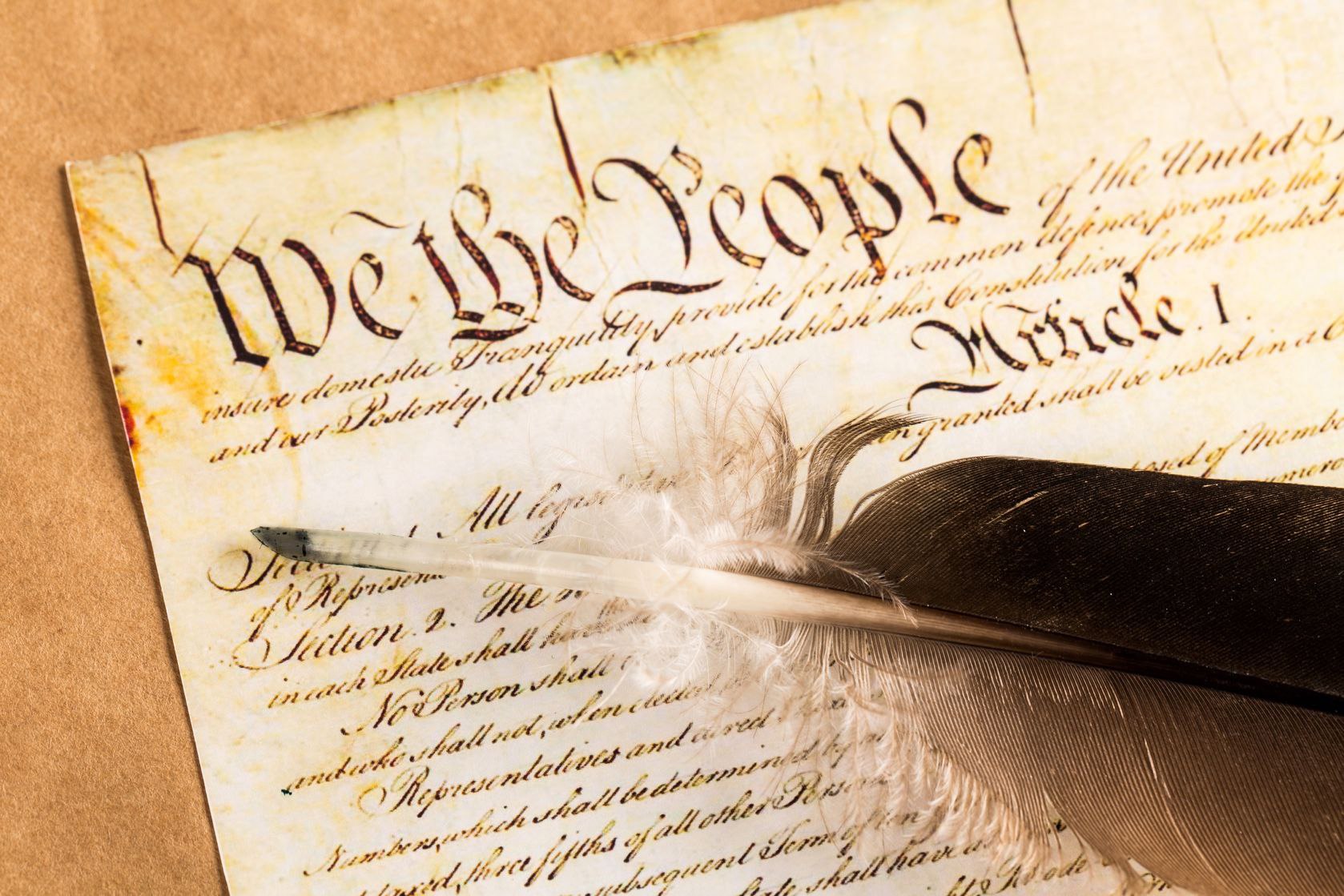By federal statute, September 17 is designated as Constitution Day and Citizenship Day. Americans are treated to speeches, news articles, and proclamations praising the U.S. Constitution. Woodrow Wilson, writing in the late 1800s, correctly observed that an “undiscriminating and almost blind worship” had developed toward the Constitution in all the American states. One hundred and thirty-one years have passed since Wilson penned those words, but little has changed. The American people continue to venerate our national charter.
But is this adulation warranted? The Anti-Federalist opponents of the Constitution did not believe so and urged the people of the 13 states reject the new form of government. The Federalists, on the other hand, claimed to have an elixir to solve the nation’s problems without re-creating an omnipotent government reminiscent of the British Parliament.
Constitution Day is a perfect time to reevaluate the assurances made to secure ratification of the Constitution and the prophetic warnings against it. Which side was right? Who correctly forecasted the future?
Here’s one indication: In Federalist No. 78, Alexander Hamilton claimed that the Supreme Court would be “the least dangerous” of the three branches of government because it could not appropriate money or command armies. It had neither “Force nor Will,” he claimed.
An Anti-Federalist calling himself Brutus questioned “whether the world ever saw, in any period of it, a court of justice invested with such immense powers, and yet placed in a situation so little responsible.” Brutus did not accept the argument that the court would be the weakest branch. “The power of this court is in many cases,” Brutus asserted, “superior to that of the legislature.” He pointed out that under Article III, the Supreme Court would “be authorized to decide upon the meaning of the constitution, and that, not only according to the natural and ob[jective] meaning of the words, but also according to the spirit and intention of it.”
Brutus was correct to be concerned about an unelected and unaccountable body exercising immense power. Today, the U.S. Supreme Court has the final say on numerous policy issues such as abortion, capital punishment, and affirmative action. Just last year the Court in Obergefell v. Hodges nationalized marriage law by holding that the traditional definition of marriage, which has existed for millennia, is unconstitutional. The Court acts as a continuing constitutional convention that makes policy under the guise of the law. Rather than the weakest branch, it is arguably the most powerful.
Now let’s look at the presidency. In defending the president’s commander-in-chief power, Federalists tried to draw contrasts to the British king. In the North Carolina ratifying convention James Iredell pointed out that the king of Great Britain “is not only the commander-in-chief of the land and naval forces, but ... also has the authority to declare war,” while in the South Carolina convention, Charles Pinckney emphasized that the American executive’s “powers did not permit him to declare war.”
But the Anti-Federalist called Cato saw many similarities between the president and a king. “[W]herein does this president invested with his powers and prerogatives, essentially differ from the king of Great-Britain?,” asked Cato. He went on to describe the president as “the generalissimo of the nation” with “command and control of the army, navy and militia.”
Our current generalissimo in the White House sends forces into combat without any concern about declarations of war that were so important to the Federalists. President Harry S. Truman even tried to nationalize the steel industry during the undeclared Korean War using his claimed commander-in-chief power. Our presidents regularly embroil American forces in conflicts around the world and claim powers that even King George III would envy.
On this Constitution Day let’s be honest with ourselves. The Constitution and the Federalists did not deliver on the promises of limited powers. The Anti-Federalists, however, perspicaciously saw the flaws in the system and tried to warn the people. If we desire to reform our all-powerful national government, we should jettison The Federalist Papers and instead listen to the wisdom of Brutus, Cato and their fellow Anti-Federalists.












